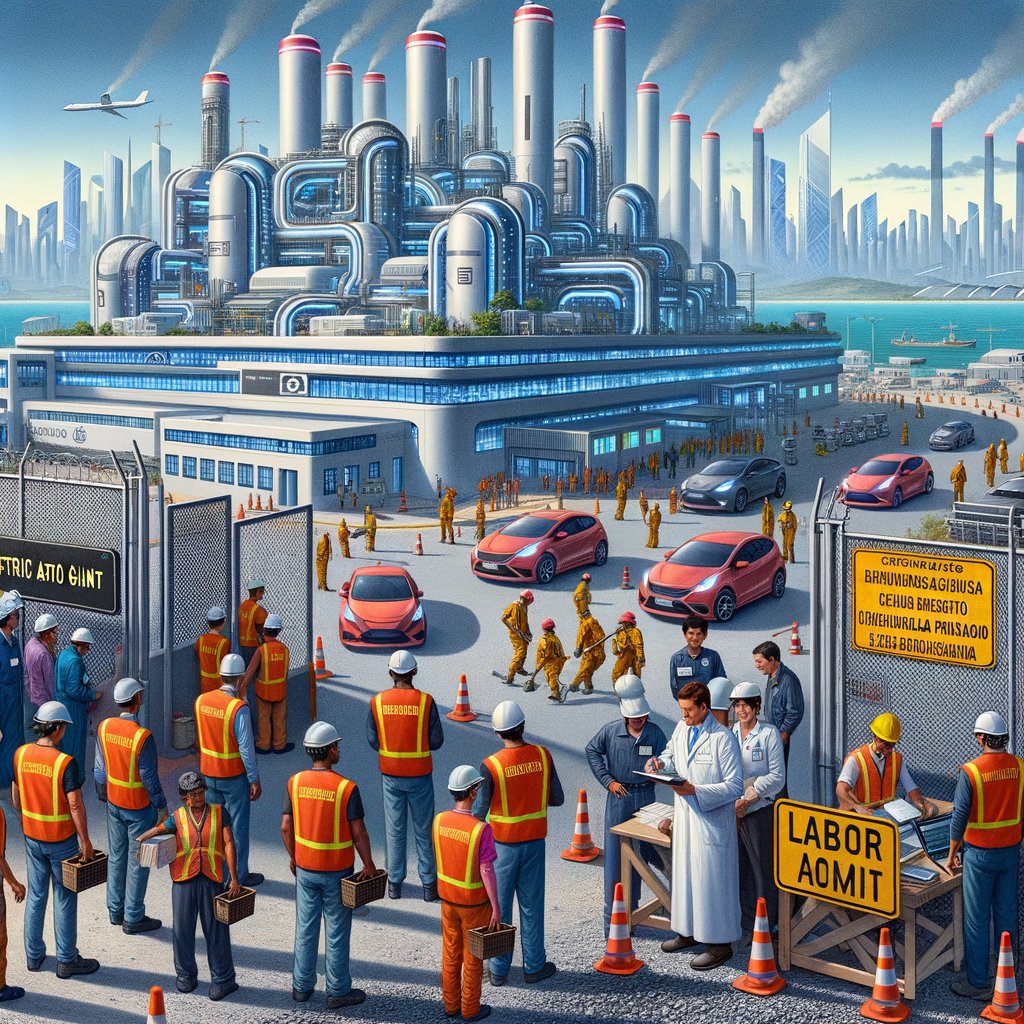Image created by AI
Allegations of Human Trafficking at BYD's Brazil Factory Site Raises Concerns Amidst Expanding Chinese Influence
In a shocking revelation by Brazilian labor authorities, Chinese workers at a construction site for a new factory owned by China's electric vehicle giant BYD in Bahia, Brazil, have been identified as victims of human trafficking. This disclosure comes at a sensitive time as BYD aims to fortify its position in Brazil, which is its largest market outside China.
The labor authorities made the announcement following a critical meeting with representatives from BYD and the Jinjiang Group, the contractor involved. Although specifics of how the conclusion was reached were not disclosed, the authorities have placed the 163 affected Chinese workers in hotels while negotiations continue to resolve their contracts.
Jinjiang Group, however, disputes the claims, suggesting that the portrayal of workers under "slavery-like conditions" stems from translation misunderstandings. This was further complicated when an executive from BYD accused external elements and certain media platforms of tarnishing the reputations of Chinese firms and affecting China-Brazil relations deliberately.
The response from China was prompt, with the Chinese Foreign Ministry confirming that its embassy in Brazil is actively engaged with the Brazilian government to clarify and address the allegations. However, as of the latest updates, there has been no new information from the foreign ministry regarding the trafficking claims.
This development is a significant obstacle for BYD, which is investing approximately $620 million in the Bahia factory complex with plans to start production in early 2025. This factory is key to BYD's strategy, aiming initially to produce 150,000 cars, tapping into its biggest overseas market.
The controversy arises amid broader dialogues about China's increasing economic influence in Brazil, highlighted by substantial Chinese investments in various sectors. However, this model has raised concerns, particularly regarding local job creation, which is a priority for Brazil's President Luiz Inacio Lula da Silva.
This incident could potentially strain the collaborative economic relations between China and Brazil. It also casts a shadow over BYD's global aspirations. The company, which has overtaken giants like Ford and Honda in global sales projections for 2024, is expanding its international footprint with new manufacturing sites in Hungary, Mexico, Thailand, Uzbekistan, and Brazil.
Furthermore, the Jinjiang Group seems to have a longstanding partnership with BYD, handling construction for its projects in China as well, which implicates its involvement deeper than just the Bahia site.
As the situation unfolds, Brazilian authorities have scheduled further meetings with BYD and Jinjiang on January 7 to propose a resolution. The outcome could potentially impact the ongoing investigations and the future of BYD’s operations in Brazil. Meanwhile, the labor and federal prosecutors in Brazil are keen on examining the evidence, indicating that if substantiated, criminal charges could be an outcome.






